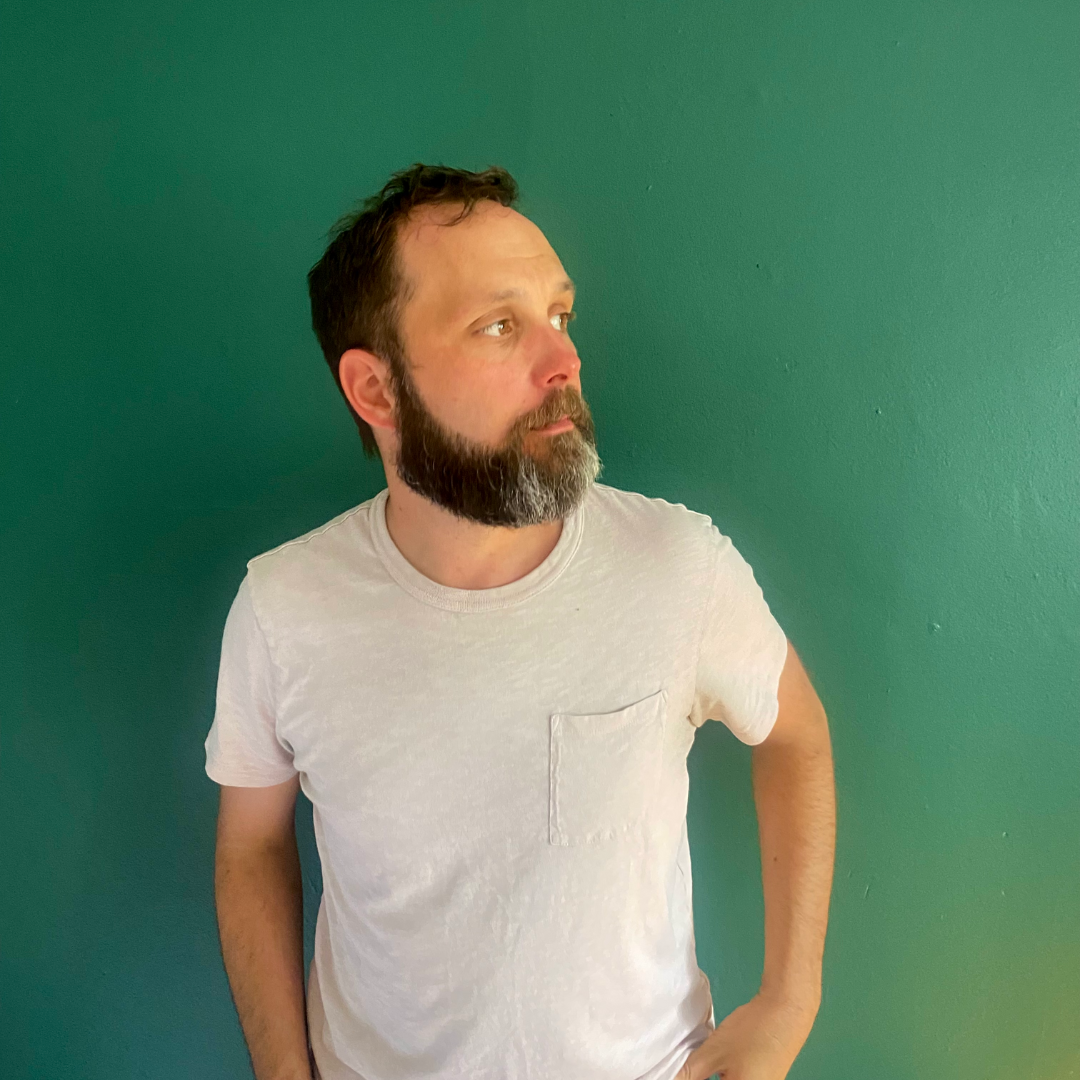Alex DiFrancesco: You’re an accomplished writer of both poetry and lyric essays. How do you feel the two overlap, and how do they differ? How does your process vary?
James Allen Hall: The essay is roomier and can accommodate a more disparate range of tones, so that the tragic and the comic inform and inflect one another. Essays come more piecemeal—it's like writing a suite of poems, or a crown of sonnets: each one approaching the subject from a different angle.
I think metaphor is where the poet and the essayist overlap. Trying to say the unsayable, to make shock familiar or familiar shocking. I like making other poetic elements—the compression of white space, the reverberating silence of the line break, burnished sonic texture, the structure of feeling—work for narrative's sake as well.
Poems use two compositional processes simultaneously: the line and the sentence. Nothing else can do that, talk with two mouths. It's why poetry endures.
AD: You’ve spoken in previous interviews about how you love the distance and closeness that metaphor allows a writer. Are there topics that are easier to write about in metaphor that we might not broach in conversation or less symbolic and lyrical writing? Do you write poems and essays you’d never be able to have a conversation about?
JAH: Metaphor can make it easier to touch a subject that is fraught or painful for the writer. It's a welder's mask or mitt. Sometimes I think it's a way of tricking the writer to get out of her or his or their own way and discover how we truly feel about complex subjects.
I often will talk about tough things with friends first, then try to form them into a poem or an essay. Sometimes I write both about a subject (for instance, being raped), and of course because form is a way of thinking, all of these are different. The conversation asks: can I be understood? Is there something I haven't seen yet? The poem has a different question: What is silence's role in what happened to me? The essay's question: How does this keep happening; how is this a social building block?
AD: A lot of your work is very personal. As a writer of such essays, where are the lines of what you feel is fair game for writing about and what you feel is not? How does the James Allen Hall on the written page differ from the James Allen Hall in the world?
JAH: The ethical aim is to treat people fairly—and to subject someone to no more investigation or excoriation than you would yourself. That said, some stories don't belong to you. In an essay called "In Lieu of Drugs," I discuss my brother's addiction and recovery, and the story of his "rock bottom" is one I feel I can't say. It's not mine to say. But, that story had its impact on me as well, and I needed to include it in the essay. I ended up using line and stanza break marks and large chunks of white space to mimic the gaps, the silences, the unknowingness and instability and brokenness of how I experienced that time. In other words, I won't tell his version of that story (what might be seen as his story), but I can tell the version of it as it unfolded to me. There's a way to write about other people.
I feel like my best self—the most honest about my flaws, the most emotionally intense part of me (the part of me I like best and am most embarrassed by since I don't know where it fits into the world) is on the page. The James Allen Hall in the world calls himself "Jamie," his given name that only intimates know. I try to as vulnerable in my life as I am on the page: maybe vulnerable isn't the right word. Maybe open. I think my blessing as a writer, and my curse as a person, is that I let in too much world.
AD: You’ve spoken previously about writing from the margins, but in a way that more people than those of your experience can access. What craft suggestions and tools do you have for writers looking to accomplish similar things?
JAH: I am in love with image so powerfully because of its ability to activate the limbic system in our brains, so that readers participate in the brick-and-mortar building of the worlds we describe. Metaphor, too, does this: makes the art participatory, genial, a gathering of minds for like-minded purpose. I think of Melanie Rae Thon's story, "Xmas, Jamaica Plain," in which Thon uses metaphor and image to introduce us to a character we may not like, or whose values we may not espouse. Image and metaphor create an immediate connection. I also think about point of view and tone—an "I" can create immediate connection as well, but not if its not perceived of as genuine, honest, and capable of beautiful and tense and surprising truths, all while incorporating some self-critical distance. Tone must be at odds with subject matter as well: since it is the way we perceive feeling, it needs to establish a voice's reasonableness or ethical stance before moving to the very emotional (there are of course exceptions). Craft remains paramount—no subject writes itself compellingly without craft.
AD: What are you working on now?
JAH: I am loving the way I can think in the essay right now. It feels adequate formally to respond to our moment. I'm writing a collection of essays, the core of which concern a particularly rough spate of time in which my grandmother died, my boyfriend broke up with me, my brother became an addict, my best friend was ousted from her job in our academic department, and I was suffering from suicidal ideation. You know. Happy stuff.
*
James Allen Hall is an associate professor of English at Washington College, where he also serves as Director of the Rose O'Neill Literary House. In April 2017, he published I Liked You Better Before I Knew You So Well, a book of lyric personal essays which won Cleveland State University Poetry Center's Essay Collection Competition, judged by Chris Kraus. Also a poet, Hall is the recipient of fellowships from the National Endowment for the Arts, the New York Foundation of the Arts, the University of Arizona Poetry Center, and others. His first book of poems, Now You're the Enemy (University of Arkansas Press, 2008), won awards from the Lambda Literary Foundation, the Texas Institute of Letters, and the Fellowship of Southern Writers.




